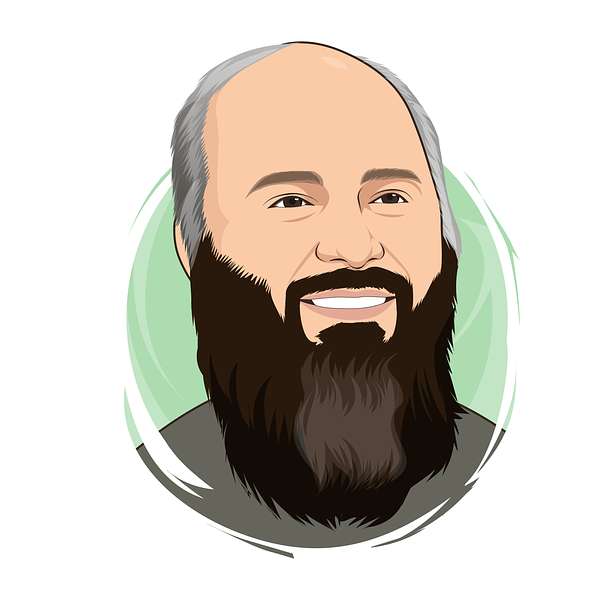
Sir Gene Speaks
Sir Gene Speaks
0046 Sir Gene Speaks Special - Censorship
I recommend listening at 1.25X
NOTE: This was recorded before the Apple announcement about podcasting.
Story Images and Links are only visible to Podcasting 2.0 Apps :
Get Breez
Get Podfriend
Get Sphynx
See all the latest APPS for Podcasting 2.0
Produced by:
Donate via Bitcoin or Lightening strike.me/sirgene or
Get some credit on Buzzsprout! $20 Amazon Gift Card
Disclaimer: This post contains affiliate links. If you make a purchase, I may receive a commission at no extra cost to you.
I recommend listening at 1.25X
And check out Gene's other podcasts:
justtwogoodoldboys.com and unrelenting.show
Gene's Youtube Channel: Sir Gene Speaks
Donate via Paypal http://bit.ly/39tV7JY Bitcoin or Lightning strike.me/sirgene
Can't donate? sub to my GAMING youtube channel (even if you never watch!) Sub Here
Weekend Gaming Livestream atlasrandgaming onTwitch
StarCitizen referral code STAR-YJD6-DKF2
Elite Dangerous
Kerbal
Podcast recorded on Descript and hosted on BuzzSprout
Story Images and Links are only visible to Podcasting 2.0 Apps - see all the ...
Today, we're going to go back to a more standard format of sir. Gene speaks. I do hope people have enjoyed the relatively long break from this format. While I was conducting interviews predominantly with people that are engaged in podcasting 2.0 development or supporting services, That started off as just me wanting to have a couple of interviews with people that understand the way Bitcoin works, the way that lightning network works. And it transitioned more into a let's get everybody involved in podcasting 2.0, that has a podcasting product or service. Let's get them all interviewed. And I did enjoy it. It was definitely a fun experience going through that and learning a lot more about people's backgrounds about how they get into doing this. There's a few commercial companies doing it, but the vast majority of development is really being done by people in their spare time developers that either develop for the day job. And while they're at home, they're developing for fun or people that have moved down from development. Maybe start off as developers, but no longer doing it commercially, but nonetheless are doing it for fun for themselves and for users of their products. I do understand that the topic was technical and not everybody likes technical stuff. Some people prefer philosophy, politics and society, which is the main realm of what this podcast has been and what it's going to return to. And so with that said, I want to talk about a topic that's been coming up a lot over the last several years. Really? Probably the last three or four years, it's been bubbling up to the surface, but it's always existed. It's always been there. It just depends on how much reaction people are putting towards it. And of course, if you saw the name of the episode, you know what the topic is, the topic is censorship. Why is it bad? And why is it practiced? I know that there are very simple and there's also some cute answers to those questions, but I want delve into a little bit of the history of censorship and how it arises and how it's I think absolutely simply an expression of a very basic animalistic instinct, something that you can say animals don't sensor each other. Well, they do, and censorship is really a form of dominance or suppression. It's the exact same act as any you name, an animal wolves bears, lions, tigers fighting for their territory. All these animals, what they have in common is that they have, even though they may not have a the same understanding as human, what they do have. Is a sense of ownership. And this is why I think ownership is one of the oldest and most basic rights that people have because it's a right that not just people express, it's actually a right that many animals, if not most animals express. And that right of ownership for most animals. Isn't about property. Isn't about things. It's about territory. It's about having control and dominion over a specific tract of land. And it's the land that you find your supply of food on whether you're An animal that hunts on that land, whether you're an animal that eat forges on that land if you lose that land, you're likely to starve to death. And so for animals, it is a very strong emotional desire that it's built over many, many years of evolution of in fact winning evolution. And that's the thing that I think could also be rephrased with evolution when people talk about it. Is that it's not just evolution that causes change. It is simply that evolution is the process of the victors of change passing on their genes successfully to the next generation who can further express the same types of genetic actions. And be able to hopefully win their competition with other improved genes that they're competing with. So I can't remember who said this originally, but it's very true that we are essentially winners of millions, if not billions of battles. And the reason that we exist today, all of us is because our ancestors and even our bodies have battled against and won a competition. And whether you want to call it a battle or a competition, whatever it is, the point of the matter is that. We're all products of those victories. So this idea of competing is very basic, not just to humans, but to all living things and to more advanced living things, which would be animals rather than plants. For example the idea of that competition extends to land. Now it's not safe. Plants don't compete at all for anything. They certainly compete with each other. And to some extent, they compete with animals and they have developed poisons they've developed difficulties, so that animals are less likely to them. So there is a competition within the plant kingdom as well. But. They don't move. And that's the biggest thing that distinguishes animals from plants? For most things, I think that's the biggest distinction because there are certainly some animals that are also photosynthetic and there are plants that eat animals. So those two exceptions break the rule, but it, at least that I'm not aware of any plants that actually traverse a territory. Their offspring do carried by the wind, but they themselves do not. So for animals, territory is a very important thing and it is a strong impulse to fight for it and to protect it. My session at the beginning of this conversation was that censorship was simply a human projection of the same basic instinct. As laying claim to a territory. The difference being is that with censorship, the territory that you're laying claim to is the territory of truth. Now we can have a separate conversation about what truth is and whether it actually means the same thing to different cultures, different people. And maybe that will be one of the episodes, but. For this context, let's just say truth is something that people will believe as the default belief. So if somebody thinks something is true, even if they have never themselves tested the hypothesis against it, then that truth has certain value because the more people you can get to think that something you believe or something you like is true. And if those people aren't willing to doubt that truth with which is generally the case with truth, people will doubt things that are claimed to be untrue more so than they will claim things to be held as true. I can use the fun example of the U S landing on the moon previously. Most people believe that event occurred and that it is true and they have. Really no proof thereof. In fact, for most people, the only time they've ever watched videos of the moon landing was on the 50th anniversary of the moon landing. they watched something that arguably looks worse than most Hollywood movies these days in terms of production value in terms of quality of image, all that things. I'm not trying to argue that it didn't happen. I'm just saying that because the idea that the moon landing is a true event exists within the general populace, every new generation, or everybody introduced to this idea that there was a moon landing has less desire to argue against it and more desire to just simply accept that because. Things that are true are things that you generally accept with little to no proof. And you know, those things are true because it's somebody that you trust has told you that these things are true. And we can get into the concept of trust at some point, too. Where this ties in is if truth is the thing that. Allows you to have less challenge Of thought challenge of idea. So if the idea that, for example, the dress in the photo is gold. Is seen as the truth because the person or whoever disseminated that information made a very strong argument. They made a very good case for the case, being that the dress was gold, then people tend to trust that as being truthful and they will go so far. So even doubt. Their own eyes, because if you look at that photo and if for anyone that is not picking up on what I'm describing here, there was an image of a photo. I guess it was a few years ago. I can't remember how many years back, but it was an image shot with a very bright flash that seemed to have shifted the colors of the dress. And I think it went from from the normal color, which was gold. To a blue colored dress. Now in reality, or I guess if you look at the original photo of that dress, that was at some point made available, it's pretty obvious that it's a white and gold dress, but if the dress was shot with a flash that had a little too much yellow color in it, essentially a warm colored flash, it would be referred to in photography. So the dress would be blown out to look as though it was a blue dress with a black, instead of a gold to dress with white because of the nature of the color of the flash used in the photograph, or you could potentially just do it by screwing around with the color balance of the image, even if the image was shot normally. So the point is that there was a a big controversy about this. So if you just simply look at the image of the photograph that was presented it certainly looked blue and black, but since I'm not even sure what the original argument was or description, but since the dress was in fact, a gold and white dress, the idea was that regardless of what your eyes are telling you, this is really a golden yellow dress. Now it so happens that the dress was actually created as golden yellow. But I think where this sort of fallacy comes in is that people were told about the actual color of the dress than shown something which had its colors altered. And then we're essentially saying yes, but you still have to call the thing you're looking at as golden white, because if you don't then you're just wrong because we know the dress is actually gold and white because that's what it was when it was purchased. And that's in a sense an example of the power of something being labeled as true. So there is good argument for the dress being gold. But there's also a good argument for the photograph showing the dress as being blue. And that's where this particular little meme kind of skipped the beat was that you were being shown an altered photograph, essentially, even if it was done innocently just through the flash. But you're being shown something that was a copy of the dress and they inaccurate. Copy you identify the copy accurately, it's being blue. And then you're told that no, that's actually inaccurate because the dress was actually gold. So the reason I bring that up is because there was a ton of people arguing for the idea that, Oh, this is totally a gold dress. Your eyes are screwing with you. Your eyes are not screwing with you for that photograph. And realized for anyone that hasn't seen the photograph, you're going to be scratching your head and going, what the hell is this guy? Keep talking about what photograph and what dress. Oh, you have to, Google is gold dress blue or maybe gold blue dress or something like that. And I'm sure you'll get some results coming back from that, with the original meme and the images and everything. I just think it's a good example of how something that is labeled as being the truth gets an automatic bias. So if people were essentially analyzing this, photograph this online image with a color analyzer that color analyzer will absolutely tell them that is the color blue, and there would be no, no doubt about it. But because this was a meme and because people were looking at the photograph already, knowing that this is supposed to be gold, it was perceived as wow Gee, why can't I see gold, I must be wrong. And that's what labeling something as true does it, it shifts the balance of proof away from one side and towards the side that is labeled as being true. So having things that are true is a shortcut for everyone, not having to constantly be doing analysis and proving for themselves, whether or not something is true or false the right or wrong. So when things are labeled as true, there's a general assumption that it most likely is true, and you'd have to prove a negative to move away from that stance. So the, how does this tie back to censorship? Censorship is really about controlling what is true and what is not true. Censoring is. Preventing a group or maybe an individual with a differing opinion from being able to express that opinion, that challenges your opinion. And there are generally two ways to argue against somebody who has a different opinion against you, but there's probably more than two ways I'm oversimplifying here. But the two common ways that we've seen over many, many years, this is to engage in a logical argument with that person. And to demonstrate that in fact, your ideas are more correct than their ideas, or to point out flaws within their ideas. That was all part of, I would say, just logical discourse and you could call it debating. You could call it whatever you like, but the idea being to take them up on there. Argument on their idea and then to either demonstrate the fallacies with it, or point out deficiencies within it while at the same time showing that neither of those exists within your argument making your argument better, the other method for doing this. And it's been utilized most recently by companies like Facebook by companies like Twitter by people like Darren O'Neill is to simply remove that person from the platform is to simply prevent them from speaking in the first place. And we've seen this happen even with president Trump who got removed from Facebook or from well, either actually now both Facebook and Twitter. I think initially Twitter was the big one that shocked a lot of people that how could Twitter removed somebody now? Twitter. Doesn't like the word censor In fact, most people that censor somebody don't really like the use of the word censor They say that's not censorship. you're, misapplying the word? No, it is censorship. Censorship has nothing to do with government and for some reason. And I think, I know the reason that in the United States, word censorship is automatically somehow subjected to this lens of government. And I think the reason for that is because in the first amendment, we actually have a prohibition on censorship to the government now just because the government is prohibited from censoring, people doesn't mean that the word censorship can only be applied to government. And that doesn't mean that private companies or individuals can't be censoring somebody as well. I think that what is happening currently, Is and an outgrowth of the very strong desire to win arguments of ideas at any cost necessary. And at any costs necessary, essentially leads to if we can't debate this person, if we can't argue against their ideas logically, then the next step to take is to simply remove them from the platform. So they have no possibility of altering other people's opinions, because really, if you thought that somebody's opinion somebody's conversation, somebody's ideas are incapable of changing other people's minds. Why would you bother censoring them? You know, If you have, let's just make a fictional character here. If you have somebody who's a homeless drunk sitting on the side of the road with a bottle of alcohol with a little sign that says, please help. And and then you walk up to them and you hear him talking about how there was no moon landing and how it's all just a bunch of bullshit. And the government's lying to people. There certainly might be people that would agree with them and donate money right away. But the vast majority of the U S population would just simply in their mind say what a crazy coot, no wonder he's homeless. Now they may or may not donate money, but either way they don't want to engage in any kind of discussion or argument with this person. They don't need to convince them that they're wrong about the moon landing. They don't need to do any of that because nobody is listening to that person. No one is paying attention to that person. Now, on the flip side, you take somebody that is well known and at least respected by some people. Yeah, somebody like Robert Kennedy Jr. Who has been an outspoken yeah. Critic of vaccines and the potential link to autism and those vaccines. And he's not by the true definition. I don't think he's, I think the evac vaccine denier, he understands the science involved. He understands how vaccines for polio and other diseases have saved millions of lives and how they work. But I think his goal is to make vaccines safer, but the way that vaccines companies and frankly, plenty of politicians and plenty of news outlets. The way that these people have presented him is as well. Oh, well, you can't trust this person. He's crazy. You don't listen to what a crazy person saying. And they've been somewhat successful. He's been marginalized. This is somebody that really was presented up on a pedestal for the vast majority of his life being the living relatives of, of what arguably is America's favorite president ever, John F. Kennedy. And yet this idea that he is speaking something that is challenging ideas that are generating lots of money, he's challenging. The people that old their livelihood to vaccines is dangerous. And. They're willing to go to that next level to essentially place him in the category of untrue for the same reason that the lion keeps its prime territory free of competitors. It's a survival technique. And so when John Kennedy Jr gets censored, it is because there are people who see their survival as depending on him being wrong. Because if people start believing that he is right and that the default state and remember right, is like the default, right? So people that come into a conversation without an opinion, or without really understanding the technical, details of what's happening for those people. The thing that is believed to be true, the thing that is right, will be more likely to be adopted. They are more likely to lean in that direction. And so it's important for these vaccine companies. It's important for politicians that are getting a lot of donations from medical companies that have an interest in vaccines. That contrary opinions are seen as kooks. They're seen like the drunken homeless guy who is unimportant and unlikely to convince anybody else of changing their mind. And they will do things to make sure that people that. Might be critiquing them. People that might be offering a different opinion are perceived as being illegitimate and censorship in the political world has at least for the most part, been avoided too in the United States in no small part due to the fact that the constitution in its first amendment prohibits government censorship. But that's not to say all governments have acted that way. I think of a great example of a government that was the longest running censorship. Certainly that we're aware of was the USSR when Soviet Russia was building its government post revolution, there were still a very substantial chance. That the communist that took over the revolution could get kicked out and replaced by a different revolutionary government because remember Russia revolted against the monarchy, not against capitalism. So it was certainly a possibility that Russia would simply dump the monarchy and then become a capitalist country that has an elected government. They didn't have to become a socialist or communist country. They could have become a capitalist country. The communists at that time in the the phase, just post Russian revolution. So in the 1920s, they understood this and they were very afraid of this idea that after toppling of the monarchy, that. They may end up losing power as well in Russia. They could keep power one of two ways. And I know I say one of two here, but again, I'm sure there were many more, but these are the two that I'm going to talk about. They could keep power by doing a great job and demonstrating how much better they were at leading the country through communism at and improving people's lives at taking the serfs that lived day-to-day struggling to make a living, struggling, to feed their families and then providing much more food and opportunities for those people. Once they were out of surf them and they became citizens. The problem was, I don't think anybody in the Russian government really thought they could do that. At least not reliably and not for any length of time. Sure you can grant some one-time payments or one time extra rations of meals, but you couldn't really do that longterm because the economy couldn't support it. And so the means that they chose to do this was to eliminate their competition. So censorship is really one of the first steps down the slippery slope enacting censorship, the REA that Russia did in the, I think it was actually even before the 1920s, but certainly by the 1920s, started them down the path of marginalizing and removing the voices of dissenters people who who wanted to show a different view. And incidentally this view didn't necessarily have to be a capitalist view either. There were plenty of people that wanted to return back to a monarchy. There were people that were socialists and communists and the two groups saw things quite differently in terms of what the next steps are and how far you should push things. There were actually groups of communists that didn't think that the Russian government went far enough, that they really were more a socialist government and that if only they could move further to communism, then all the problems would be fixed. So I don't want to say this was a capitalist against communism type badly. It really wasn't. But nonetheless, it was a move by the people that had managed to gain power who were in the communist party. No matter how deeply communist do you think they actually were. And they started using the exact same techniques that the Catholic church had used for literally a thousand years in fighting descent. And those techniques were to present contrary opinions as being, not just wrong, but actually being bad or evil. I'll give you an example of this. So if I'm having a conversation or let's say you in an argument with somebody and I'm attacking their idea, I'm attacking the things that I think they're doing wrong or incorrect. And their response has nothing to do with showing their ideas are better. Their response is an ad hominem attack, which is a logical fallacy that essentially says shift the focus to the person, not the idea. And let's say I'm. Talking about that same gold or black dress. And I'm saying yes, the dress is gold, but you have to agree. This photograph shows it to be blue in that gold. And the person's response might be well you're fat. Okay. Well, that's a response. It's not a response logically to that debate, that conversation. And that is obviously a very simplistic version of that because generally, the response is more complicated than that. It's going to go after the standing of the person it's going to go after the memberships of that person, it's going to go after things that may make people feel like, boy, if I agree with this guy, I look like Hitler and I don't want to look like Hitler. Therefore I shouldn't agree with Trump. It's that type of mentality it's attacking the personality. Rather than debating the ideas and certainly in the Soviet Russia, this went on to a very strong effect. So people that may have even been supporters of the communist party early on, they started to be labeled as traders. If there was some aspects of the current administration's version of the communist party, that they didn't agree with some aspects of the communist party, that they may be wanting to change or improve. Now they were traders to the Homeland. They were truly just working for the exiled monarchy. They were working for the capitalist Americans. They were painted with every brush. You can imagine to label them as being a bad evil person. And by And by definition really labeled as somebody who speaks untruth rather than truth. Now, many, many years later George Orwell in his novel, 1984 takes this to the ultimate absurd level where the ministries of truth job is to essentially change lies to truth on a daily basis. And to make sure that people simply acknowledged the truth is what the ministry of truth labels as truth today. Not that truth somehow has its own unique. Existence outside of the party, but that was many, many years later. And really the slippery slope of censorship is that if censorship doesn't work or at least it doesn't work, as well as the group or person perpetrating, censorship believes that it has to the next step after censorship is actually prosecution and that falls into the category of physical harm to people. So censorship is essentially removing somebodies ideas or speech from a public discourse, from a public arena. And it's the easiest move that a politician can do. It's. Not that difficult to move for a private company to do. And it's a fairly simple move for set for somebody with any individual power to do is to simply sensor somebody and say we don't like what you're saying. We're going to remove you from our platform, Facebook Twitter, et cetera. We don't like your ideas about communism because our ideas about communism or are better BLM or Soviet Russia in the 1920s. Removing somebody because you don't like their ideas is censorship, but what they found out in Russia. And I think it's always been the case even before the Russian experiment. The, so the Soviet experiment, I should say. Is this idea that some people are still going to fight, even if you censor them, they're going to try and distribute their works. In a, on the official manner or a hidden way. And so the next step is really the persecution of those people. And now if you have government instilled censorship like you did in Soviet Russia, then you can simply say that they're breaking a law now by publishing something that is illegal to publish that by appearing at a rally, that is an illegal rally by meeting with friends in their homes during the time of COVID, these things are illegal and therefore now you can go after them using legal authority and persecute them in Soviet Russia. I think everyone's heard of gulags. These were essentially prison camps that were different from normal prison because they were really work camps. So if you have. Dangerous criminals, murderers, rapists, et cetera. You keep them in cages. You keep them in cages for their safety and for everybody else's safety. And this is typically what prisons are in most countries. Us has the largest prison population in the world right now. I believe even though we don't have the highest population overall by a long shot. But in Russia, because they were using prisons also for a dissonance and dissonance are people that you tried censoring, it didn't work, or you weren't happy with the end result because they're still managing to get their word out. and there were so many dissidents that simple prisons wouldn't work. And if you combine the idea that now you have way more people than you have prisons that need to be in prison because of this. Idea that they're not, or being censorship laws and you kind of know well, they're not really dangerous criminals, they're political criminals. There are people that are not going out murdering and raping. Well, you don't really need to have a high security staff around them. They're not very likely to try and do a prison riot. But what you do need is to have a lot of land for them. And if they escape, it's gotta be far enough away that they can't quickly and easily get to a city where they can hide. So you build these Gulag prisons on the outskirts of Siberia, far from civilization, far from anything. Since you're going to have a large supply of people there and not really nasty criminal people, but just politically bad thinking people, well, you might as well get some labor out of them. And so they ended up using these labor camps for mining operations, for farming operations, for all kinds of activities. And incidentally, the U S also does a similar thing. You were in prison. The prisoners are not just sitting around reading magazines and watching TV. I don't know if they're required or not, never been a prisoner, but the, at least according to what I've seen on TV, there are certainly work opportunities. And then they may be mandatory. Maybe not, I don't know. But the, what you get for working in prison is peanuts. It's nowhere near the national minimum, average and idea, being that while you're food and clothing and your bed is provided for. So why would they pay you any more than that? But I think I've heard 18 cents an hour as a rate of pay for prison labor in the U S. A lot of companies are making good profits that's off using prison labor to create their products. This is a this was a market that was there untapped up until maybe 15, 20 years ago. And it has gotten very utilized since then. But in, in Russia the party was controlling the economy. There wasn't companies doing this, like there are in the U S there was just yeah. Government. so the communist party was getting the benefits, if it's of the free labor in those prisons. I've met personally one guy that served, I think, five years in the Gulag. And it's, there's simply like a lot of them are dead now. So there's not a whole lot of opportunity to meet people that actually were in gulags, but. Generally, these were intellectuals. These were people that had more than just wake up, go to work, come back from work, go get drunk, go to sleep, wake up, go to work type mentalities. These were people that had read books that had studied other cultures learned foreign languages. To use those people as physical labor is almost like another level of punishment because you're effectively ignoring the real skill set that a person has. And you're using them as chattel. You're using them as simply somebody that can do physical labor that you desire, and they're not necessarily built for it. Right? These are not, you can imagine a bunch of nerds get sent to a Gulag. They're not going to be particularly good at. Doing the physical labor tasks. They're not going to be great miners. They're not going to be great farmers. They're going to be pretty shitty at all those tasks because they've spent their lives using their mind instead of their hands and their bodies. So I think to rounded back to the original topic of censorship, right now with censorship being so prevalent certainly on the side of the left in the United States, I don't even know if I should call them Democrats anymore because I think the Democrats that I'm used to, that I grew up with are But Democrats like the Weinstein brothers..they're the guys that like to poke at and challenge ideas of capitalism, but they're definitely not communist or socialist what we have running the left of the United States right now. I think in some ways are more communist than the Russian revolutionaries 100 years ago were because those people wanted to first and foremost get Russia from underneath Imperial rule. And as soon as they got power, they realized shit, this is good. We need to figure out how to keep this power. But it was like I said, there, there was absolutely a chance that Russia could have after ending the monarchy. They could have ended up being capitalists. The problem was that the communists had much better messaging. They had better memes. They were able to tie into the psyches of people a lot better than other political groups that were alive at that time as well. They figured out how to frame the conversation by appealing to the biggest number of not just serves, but even lower class citizens in Russia and showing them that what they have right now we're really, really, really sucks. And it's a great opportunity to change it. And we'd like to lead that way because we're the ones bringing you this message. It really wasn't any kind of a. A logical appeal to why communism is better. It was more, a Russian Czar bad, so help us topple. This Czar get rid of them and anything will be better than that. Of course the anything ideally is controlled by those same people. In, in some ways the parallels with what's happening in the United States right now are really, really profound. There's also plenty of differences. Like the U S never had a Monarch George Washington had the opportunity to be a Monarch and decided that was not in the best interest of the country and that instead of replicating a monarchy let's have a Republican stead. In the us, we have attributed some of the traits of a monarchy to whoever the current president is. We definitely saw this out boy, probably going back to probably around the U S civil war. I'm not sure if I can think of any of the U S presidents prior to civil war who were perceived as being symbols of the country. I think for a while there for probably about 50 years or so. The president of the United States was more seen as an administrator and not so much as the leader of the free world or, the, whatever descriptions are currently utilized to portray them as more than human somehow. So for awhile there we just said presidents that were. Philosophers that were great thinkers that have ideas. We had some that were shitty thinkers and we had some that were philanderers, but they weren't really, any of them perceived as these bigger than men kind of people, other than George Washington, I am sure Washington was. And like I said, he certainly had the opportunity to become a Monarch, but starting with Lincoln who effectively ignored large parts of the constitution in order to maintain the union. And it's that's a whole other podcast topic, I think for the future, as well as deconstructing the civil war and how this idea of do anything, including things that are prohibited by the constitution to save the country that the constitution is written for. It's somewhat bizarre. It's understandable from a human nature standpoint, I can take it right back to that lion protecting his range. When there's another group of dissenters in the pack of young lines to decide, to walk away and say, all right, we're going to split our territory. We'll take that left side and you keep the right side and the old lines saying, nuke, if you leave, you'd get no territory. If you leave all that territory stays mine and I'll fight you for it. And that's what ends up happening. We ended up having a civil war in the United States, which is still the bloodiest conflict in terms of deaths by United States personnel, more than the world war II, more than any conflict, even if it's not officially a war since then. But really after Lincoln, we start getting into this idea of the presidents being. More of the equals of the heads of States, of other countries who have still to that point, a lot of monarchs and certainly a lot more prestige tied into the office in the United States initially had. I think that has somewhat peaked. I think Trump threw where Trump was perceived by the make America great side as being the embodiment of the ideas that made the country great. He was as much a symbol of the United States of the success of the United States of the brashness of the United States of the attitude of the United States as he was an actual, president doing day to day presidential things. The fact that he tweeted so much and it doesn't have to be Twitter, it just has to be communication. Is a great example of him acting as almost a spiritual leader as a symbolic leader of a country. Rather than an administrator of the country, he wasn't just running. In fact, I'd say he did a somewhat crap job of running the country overall, given how many poor appointments he had, the number of people that he hired on that turned out to be really bad for him and pretty damn bad for the country in the end. Including a couple of Supreme court nominees, I think is going to be a legacy. That's going to be hard to shake for him. He has catchphrase may be you're fired, but man, does he not know how to hire people needed to do a much better job vetting people. Yet had another episode, so plenty of ideas for future episodes here. But to the other side, to the people that did not like Trump. He was literally Hitler. He wasn't just like Hitler. He was a reincarnation of Hitler. They saw him as evil personified. Most of these people are, I don't want to call them atheists because that would insult atheists, but they're a religious. So they're not going to use phrases like he's the devil. Some of them I'm sure did, but the majority of them would not. so While what's the worst possible thing, other than the devil, if you don't want to get religious while I would be Hitler, you have to not just equate him with Hitler. You have to say he is the embodiment of Hillary. He literally is Hitler on earth today and should be treated like America treated Hitler during world war II. America was coming in to the aid of their ally, England and a few other countries in Europe. But for the most of maybe not the most, but certainly for half of world war II up until Japan attacked Pearl Harbor, the U S attitude was like that's European business. They're constantly quibbling over land border issues. This is why we live here. We left that long ago. We don't need to be involved in it. And it wasn't that America couldn't send troops sooner. Instead, American politics chose not to, but once do you, us was attacked. Now it's you get dragged into a war one way or the other. So maybe that's another topic is talk about FDR and the options and choices that he had. And how using world war two to his political benefit was ultimately a choice that he made. FDR is obviously another American president that was perceived and really relished in the perception of being more than just simply a, an administrator, more than a bureaucrat, but be perceived as as somebody that embodied the will and the ideals of America. His cousin, uncle, I can't remember what the relationship was. Teddy Roosevelt was another one of those people that also really relish the idea and was promoted as representative thing, American spirit. And that was back when the West was still wild and Teddy was very much perceived as. Being that American guy that's swinging a six shooter and willing to go and take land for himself and to re educate the natives and grow the crops and do all the things that were done in the late 18 hundreds. Although he did also create a bunch of national parks that are still around today. And then John F. Kennedy, who I mentioned earlier he is probably one of the more recent presidents that was absolutely playing into the idea of royalty. Th that his family, me and the administration were called Camelot. The children were seen as heirs to the throne. The fact that Kennedy was elected by a nefarious, tempering by the mob in Chicago. And a couple other places, which there have been now books written about quite a few. And I think even a couple of movies made that was all swept under the rug because how you got to be King didn't matter, the fact that you were King mattered. In Kennedy's case his interest in living the lifestyle in promoting himself in that monarchal way led to his eventual death because whatever version of the assassination of Kennedy you choose to believe in, I don't really even care. But one fact is true that the guy got shot. He died. There was a as, as, as far as I'm aware, there's nobody saying that whole thing was fake. Then Kennedy was still alive. He just got sick of being president. I don't think that was the case. So Kennedy ended up dying and this is where I guess my value judgment is. And I think that death. Was the result of wanting to embody this idea of living as more than the man of living as a an idealized version of what America is as being really it's, it's more of a Monarch or a King idea it's that you are divinely selected or the, your role and that you are no longer just a man. You are now the country. This is still how the queen of England is addressed and how she's perceived officially, even though there's no pretense of it, this is the way the Dalai Lama was also perceived and and also addressed. And the current Dalai Lama, even though he's been living in exile for most of his life when he was growing up and Tibet, that was still very much the way that he was perceived as you, you may simply be. A mortal body, but that body is housing, a divine spirit, that idea by other people can lead to great things. People accomplishing awesome tasks. I think in a lot of ways, Kennedy was a responsible for the American victories of the space race, because he was perceived as this sort of demigod because he was the spirit of the country and he could challenge people to work beyond normal conceptions of what is possible so that there could be advantages in that. Hitler absolutely utilize the same thing in Germany where the perception of Hitler was he was the average German guy And yes, I know he was actually born in Austria. who was being pushed on and. Being squeezed dry by these European countries after world war one, who essentially didn't just win world war one. They kept punishing Germany for the next 20 years into oblivion. It wasn't enough for them to win the war they had to with their reparations. They had to keep punishing Germany and prevent a whole new generation of Germans from being able to lead normal lives. That was the message that connected with the average German that led them to support Hitler. It wasn't go kill the Jews. I'm sure there were plenty of Germans that didn't like Jews, but the majority of Germans didn't hate Jews. We know this from historical writings. What Hitler offered. Was this idea that we deserve better and we're being abused right now. And therefore, if you follow me, I have a path that would lead us back to where we were before back to greatness. And in fact, we are the third Reich and that kind of ties it historically to Rome and the victories of the great empire there. I mean, Hitler was great at just pilfering messaging and symbology from other cultures. Tying it together, to create this sort of quasi mythical path for German peoples had Europe not had the reparations post-World war one in Germany could have financially recovered quicker. I have no doubt that world war II would not have happened. World war II would not have happened. The mass anti Jewish sentiment and the killing of 20 million Jews would not have happened. Israel would likely not have happened. There would probably be noise around today. There might be Jews living in the middle East. There might've been enough Jews to get enough money to have Jewish cities, but it's highly unlikely that there would be a Jewish country. And I don't say this because I think Israel shouldn't exist. I say this just from a historical reference standpoint that you can ultimately go back and track down the causes for things. Much as world war II can be tracked back to a single shot being shot by an assassin. You can draw a direct line from the actions that happened thereafter to what is happening in. Israel right now with the bombing and the strikes and the counter strikes. It's, it is pretty much a direct line. There have been plenty of opportunities for people to change how they do things, but, we know that some feuds are very deep. The the Hatfields and McCoys and the United States, I think had a feud for over a hundred years. And that is nothing compared to Bedouin tribes. Other is nothing compared to the Balkans where literally people have been feuding for thousands of years, literally thousands of years, where somebody with a particular, last name has hated somebody with a different last name. This is how countries were built there. This is how well they weren't countries at the time they were, villages and maybe cities at some points, but eventually became countries. This is why when you go Slavia was created. It was really an amalgam of a bunch of small warring, I guess you could call them nations, but groups that the communists is so it's social, it's probably just didn't want to deal with. So they checked them all in under one name. And incidentally Yugoslavia simply means Southern Slavia or the Southern lands of the Slavic people. It's a wholly made up name and it just categorizes at a location or a region more than anything else. And of course, at the end of the fall of communism Yugoslavia, it became nonexistent because each of these groups broke apart. The Muslims didn't want to deal with the Christians and likewise from the other direction. And then they all hated other people, even within their same religions. And it just starts to Completely break down. Now I'm getting off the topic of censorship, but let's see if I can ring him back in and wrap this episode up. Censorship is bad. Why? I guess we talked about history. We didn't talk about rationale and reasoning. Censorship is preventing other people from hearing a message. You don't like, if you don't like a message and you just don't want to listen to it, it's really easy to do without censoring somebody. You just have to ignore that message. You ignore that message. Ignore that person, ignore that organization. You ignore that thing. You take it. If you're on Twitter you take it out of your timeline. It's not hard to ignore something if you want to prevent other people from hearing that message though. That's a whole different issue. And that's that censorship preventing other people from hearing the message. Isn't you simply saying, man, I just don't want to hear that over and over again. I don't like the messaging. It's saying that message is dangerous. That message. If heard can have an impact that will be negative to me. I don't want to hear that message. I want to stifle that message. I want to block it. I want to prevent it. And I want to censor somebody. Nobody who's censoring has all these thoughts going through their head. Like I just described. All they do is click a mouse button and sensor somebody, they click a mouse button, they kicked somebody off. They ban somebody, they remove them from the platform. The way that Trump got removed from Twitter later, they can come up with some rationalization saying the real reason that you were removed from Twitter, the real reason that we kicked your bands, you wasn't because. You were doing what you claim you were doing. The real reason was you broke some community guidelines here and here's, by the way, we're going to tell you those guidelines after the fact, cause we just made them up. We just made up some guidelines to justify what we did. And there you go. Now, you know, the guidelines and you know why we did what we did and it was right and proper. It's obvious, I think to anybody paying attention to that's usually just bullshit. Presenting rationalizations for after the fact for censorship is exactly that it's just rationalizing after the fact censorship is generally done on impulse on a emotional trigger. And this is why brought in the connection to very deep, very animalistic desires for domination is because this is typically how censorship happens. It is the lion, the wanting to roar and piss all over the place to keep the competitors from encroaching on their territory. And it's easier for the lion to make a big stink about something and keep the competitors from ever invading their territory than it is to have the lion actually get into a fight with the other lines that are invading their territory. And censorship is exactly that it's avoiding the fight of ideas by simply removing the ideas that are contrary to your own ideas from the fight in the first place from debate, it is an extremely weak move, but unfortunately it's a weak move that has worked very well in history over the years. Because the only counter to censorship is to break through the censorship it's to create a louder roar from the lines that are trying to get that territory than the line trying to defend it. If your book is censored than having a book that sells even more than it did prior to censorship, by having photocopied copies, be now sold instead as was done in Soviet Russia to banned books, you can buy banned books, but they were generally just photocopied on copy machines. People went to prison when they were caught photocopying books. But that is. The only real counter to it. So you have to have a very strong desire to push back against censorship and do something about it. And for Trump, I think there was an awful lot of hesitation because the obvious pushback against censorship for a guy that just got banned off of a large platform. And there's a billionaire is to simply buy another platform like gap, for example, and then put the power of your wealth behind it to crush the platform that just banned you to take all the potential revenue from advertising on Twitter, away from Twitter and by selling much cheaper ads to the same companies on your new platform. Now, Trump didn't do that. I think He may have had some advice that kind of pushed them away from doing that. I think it was the wrong advice at the time. I think that whether it was gab, it doesn't have to be gap, could be anything else that could have been a brand new company that they started. It's just with a preexisting company that he purchased. He would have more of the infrastructure. But doing something to push back against the message, put your own message out is really the only way to fight censorship. Because if you do nothing, censorship wins. If you don't discuss it, if you don't talk about it, if you don't keep getting your message out, the people that were doing the censoring, they got what they wanted, they removed a challenge to their ideas simply by removing your physical ability to present your own ideas. And unfortunately the reason that companies can censor people is because companies are providing something that is sold at least as being free to people. But remember, if you don't pay for it, it's not yours. And so when somebody builds up a million viewer channel on YouTube, like Steven Crowder did, I can't remember how many million he has at least a million, possibly several million subscribers, not just viewers on his channel, billions of views of people on his channel. And the, yet, you would think that something that popular YouTube and Google, which is really the parent company, or I guess alphabet is they would be loving that. Like they would absolutely be in love with guys like Steven Crowder that are generating. Tons of views that they can sell ads on, but instead they've been broiled in a continuous, heated battle of trying to come up with some little rational way, even though most of them aren't very rational of why Steven Crowder needs to be censored, why he needs to be taken off the platform. They've done these one day, three day, 10 day things where he's first of all, I guess the first step is demonetizing. So then what the monetizing is, and I'm sure everyone's heard the word before, but just so you're clear demonetization doesn't mean that they stop running ads on your channel. The monetization is exactly what the word means. It is no money. So there's still ads running on your shows, but YouTube keeps 100% of that revenue. You don't get any share of that portion, which normally you would get. And I think the percentage is actually vary depending on how popular you are. But essentially YouTube does a revenue share with people that have at least a thousand subscribers. Maybe it's at least 10,000 used to be nothing. Like I used to be monetized on YouTube back when I was doing gaming videos, because you, I think I had 800 subscribers or something like a fairly small number. And yet I was still getting money from YouTube. Because they, they had very low barriers to entry to that program where you could just sign up and start monetizing videos. They don't do that anymore. I think they realized that there's way too much of a hassle to provide people with. Checks for$5 a month. And so they only do that for people that have a lot more subscribers and views. And I'm not sure what the numbers are right now, but anyway, somebody like Crowder that has just tons and tons of views and over a million subscribers yet, somehow even though he's generating tons of money for YouTube, he's getting pushed out. He is I don't want to say one way or the other does he's off YouTube right now because that status literally seems to be changing on a daily basis now. I see that Crowder has been kicked off YouTube Crowder's back. I needed to crowd has been demonetized, crowded, gather his monetization restored. And I know he soon YouTube, I believe that case is still in progress right now. Or he's suing Google or alphabet or all of them, but either way why is he getting, why is that happening? It's not because he's doing something illegal on his channel. He's not doing child porn. He's not doing drugs. He's not doing any activities on his channel. That would be deemed illegal yet, by the way, plenty of people are look how many videos there are that literally show people doing drugs on YouTube cube and they're still up now. The reason that Crowder is being, being removed from YouTube, is it because there are a lot of people within the YouTube hierarchy that dislike the message that he's putting forth. They don't like it. A guy who's a comedian, but he's not a comedian making fun of conservatives. He's a comedian making kind of liberals. He is, I wouldn't say he's to the extreme of Sasha Baron Cohen. But to some extent, I guess you could say that he is somewhat like Sasha Baron Cohen in that he does political humor. And makes fun of people on the other side of the political spectrum. And that's essentially what barrettes whole characters about it's making fun of wholesome conservative Americans and all look how silly and stupid they are. Oh, look at this. They're doing things that make them look bad. Yeah, Crowder does the same genre. I wouldn't say to the same degree, but certainly the same genre. That is not something that a lot of the hierarchy at YouTube Blake. And so they've been trying to come up with creative ways to do it. The monetizing is supposed to tell a YouTube creator to change their messaging, to be more in line with expectations, or you just don't get paid and Crowder after the first time he was demonetized. kept Doing a show. You would think YouTube would be super happy and they're making money off of him. And they're not even paying him money and he's still doing a show. That's like a win-win from a financial standpoint, but that's not enough. Eventually they have to actually remove him from the platform. They have to stop the messaging that he puts out because in their mind that messaging is dangerous and contrary to their official messaging. That's how censorship ties back to were very primal actions based on our prehuman evolution is played out in the game of information dissemination. Hopefully you guys have enjoyed this episode on censorship. I could probably talk about it for another two or three hours. I really didn't dive into a lot of the contemporary history of censorship beyond the Russian revolution, but there is an awful lot there. It's actually been a topic that I've studied in followed along and made fun of and been censored a number of times as well, it's something that I think more people need to understand. They need to understand the basis of where it's coming from, why it exists, why you'll never stop censorship. You just need to learn how to fight censorship. And with that, I will go ahead and wrap it up. If you enjoyed this episode, I've got all the donation addresses, including Bitcoin both on lightning and outside of lightning in the information link. To the episode. I think Bitcoin is awesome. There's nothing right now that beats it if you have to switch it into us dollars as a form of paying bills. it's much easier when somebody donates us dollars in the first place. So with that, I would like to thank everybody that has donated for me this year. And I know that the nation's got a little weaker while I was doing the series of interviews. That's okay. I get it. That's a very specialty topic. I think those interviews are going to be more long-term episodes. Meaning people will listen to them for the next several years because they're not tied to any specific period in time. And they really give a background of the person that I interviewed and why they're doing what they're doing. And if any of these podcasting apps ends up becoming the top podcasting app in the app stores, it'll be pretty cool to have had the interview with the author of that app prior to that happening. I'm very glad I did that, but I think now it's time to get back on track and talk about topics. You guys enjoy like this one. Thanks for listening. Take care.



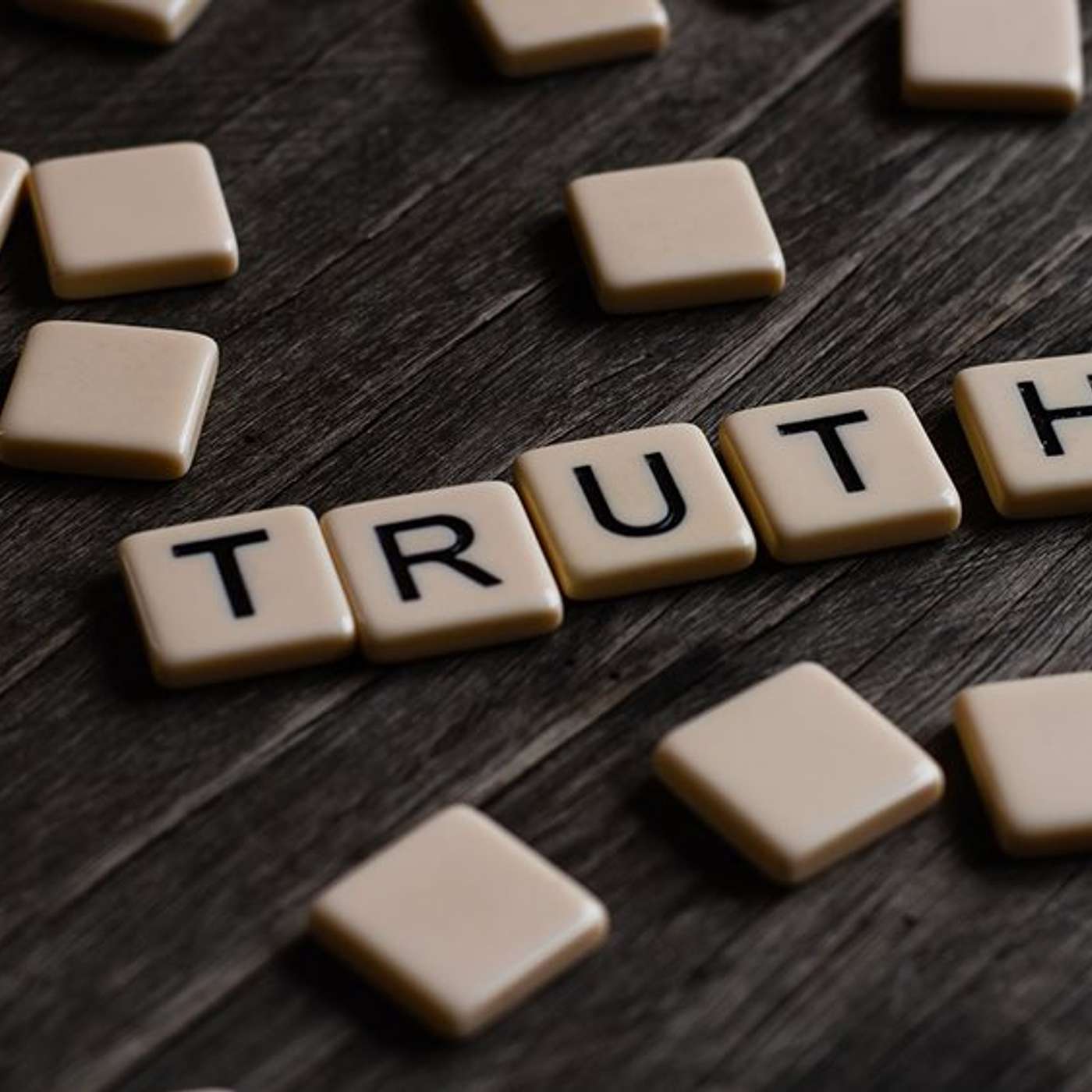

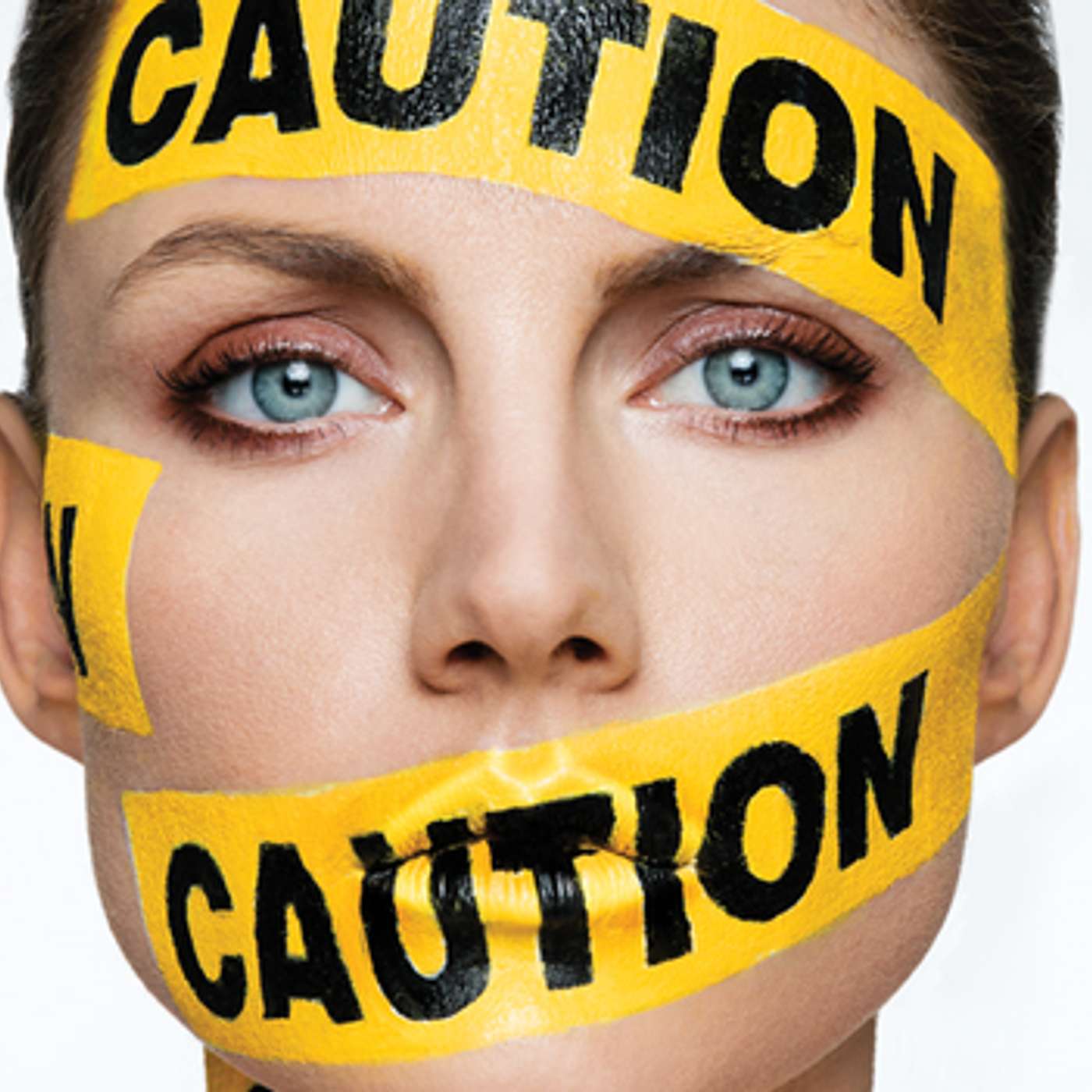
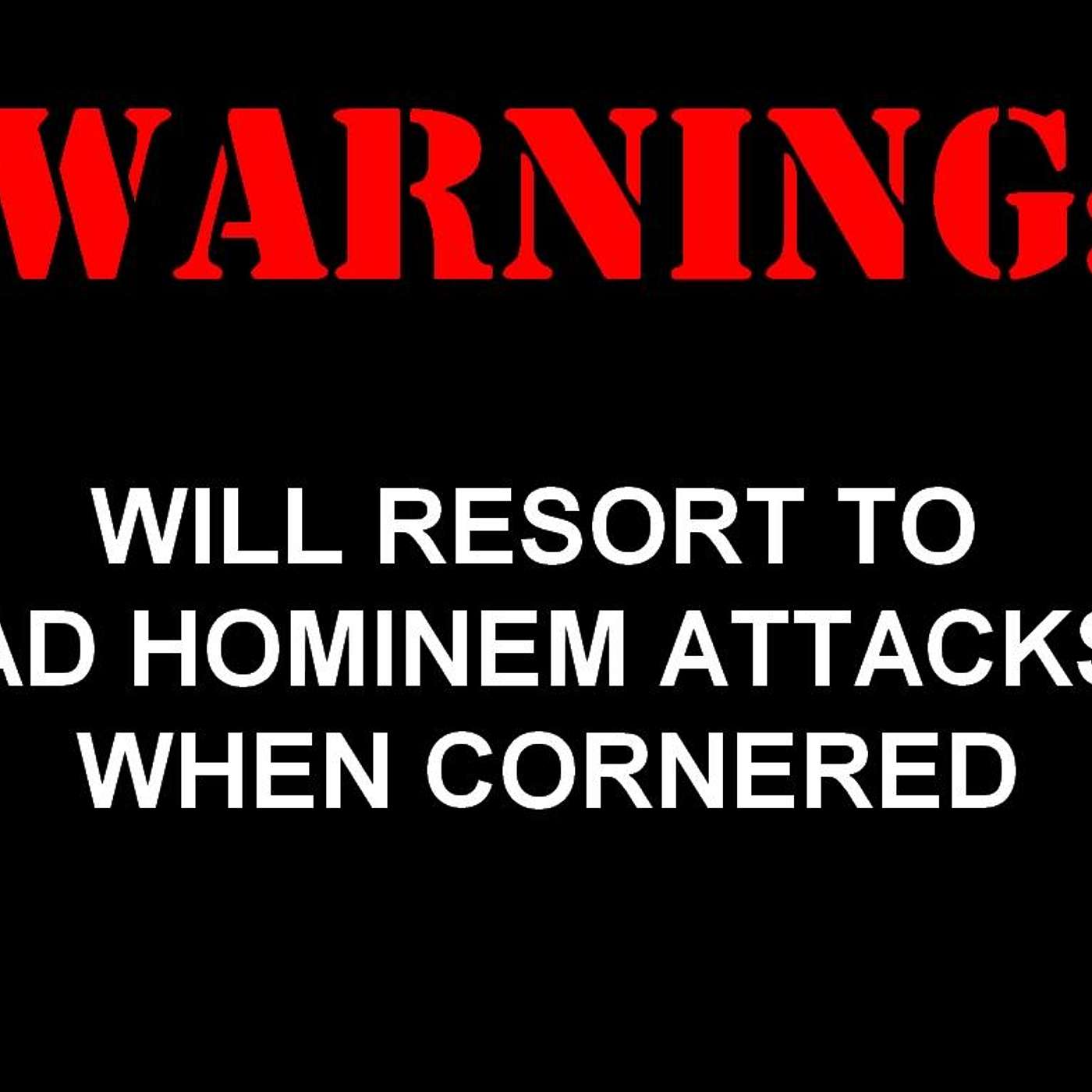
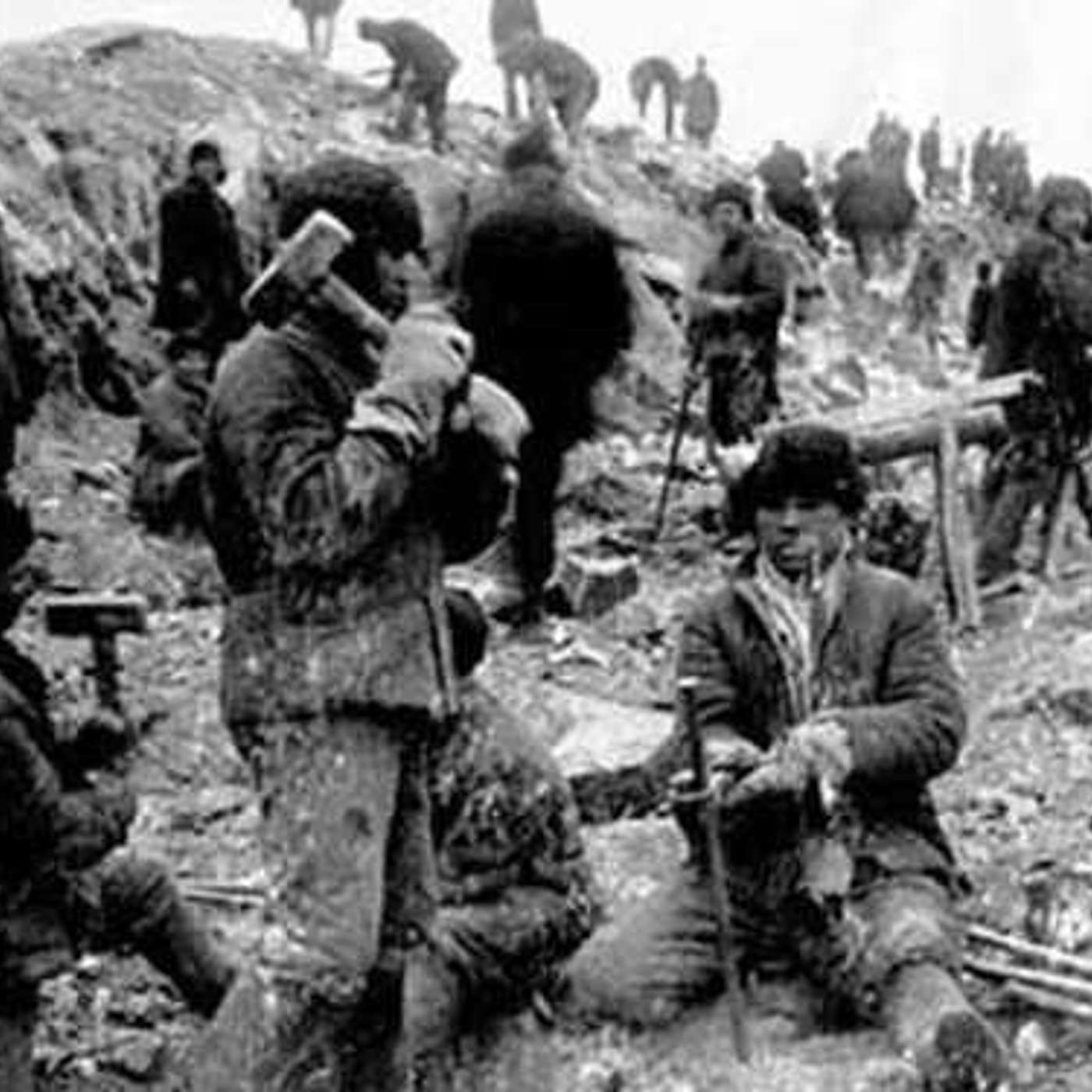

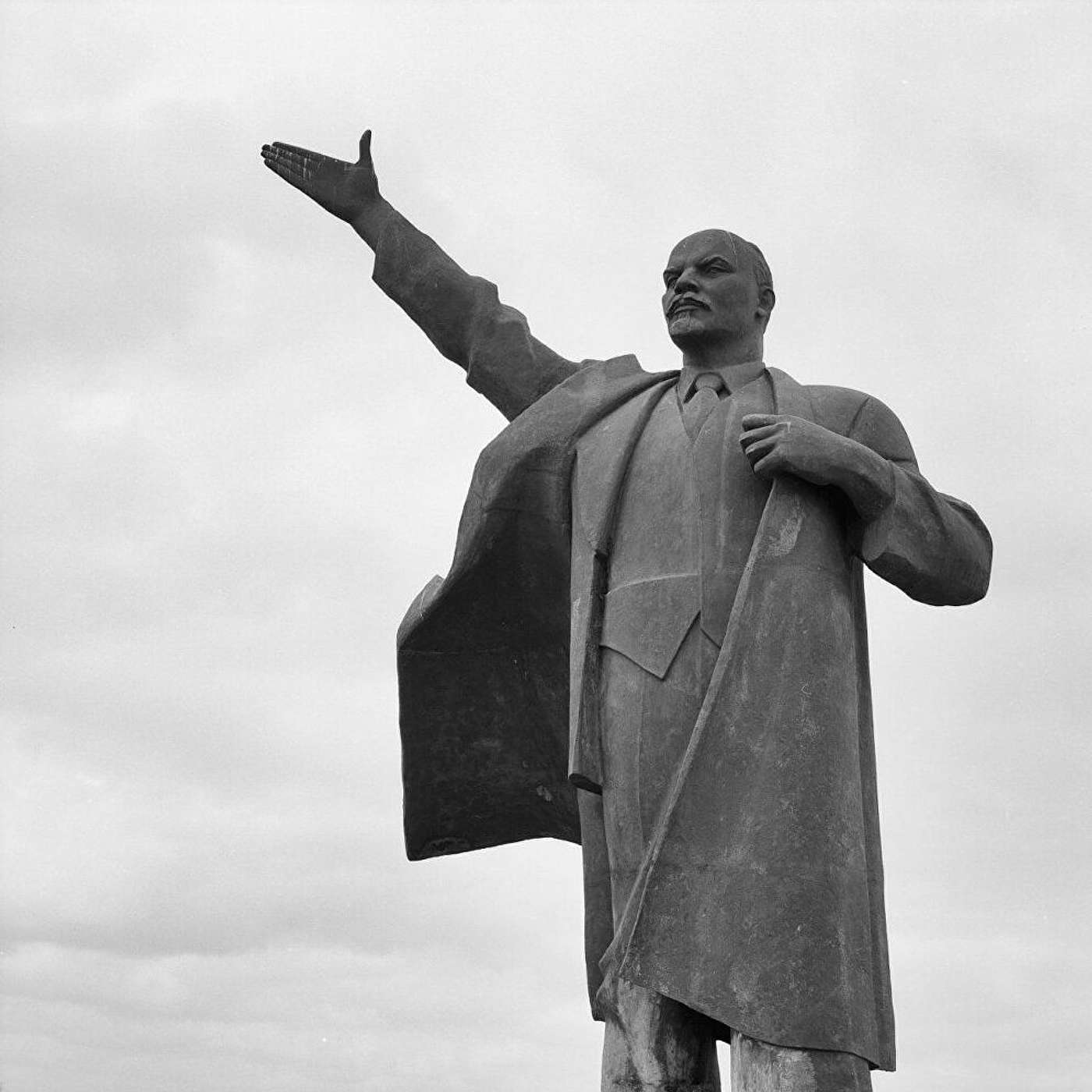
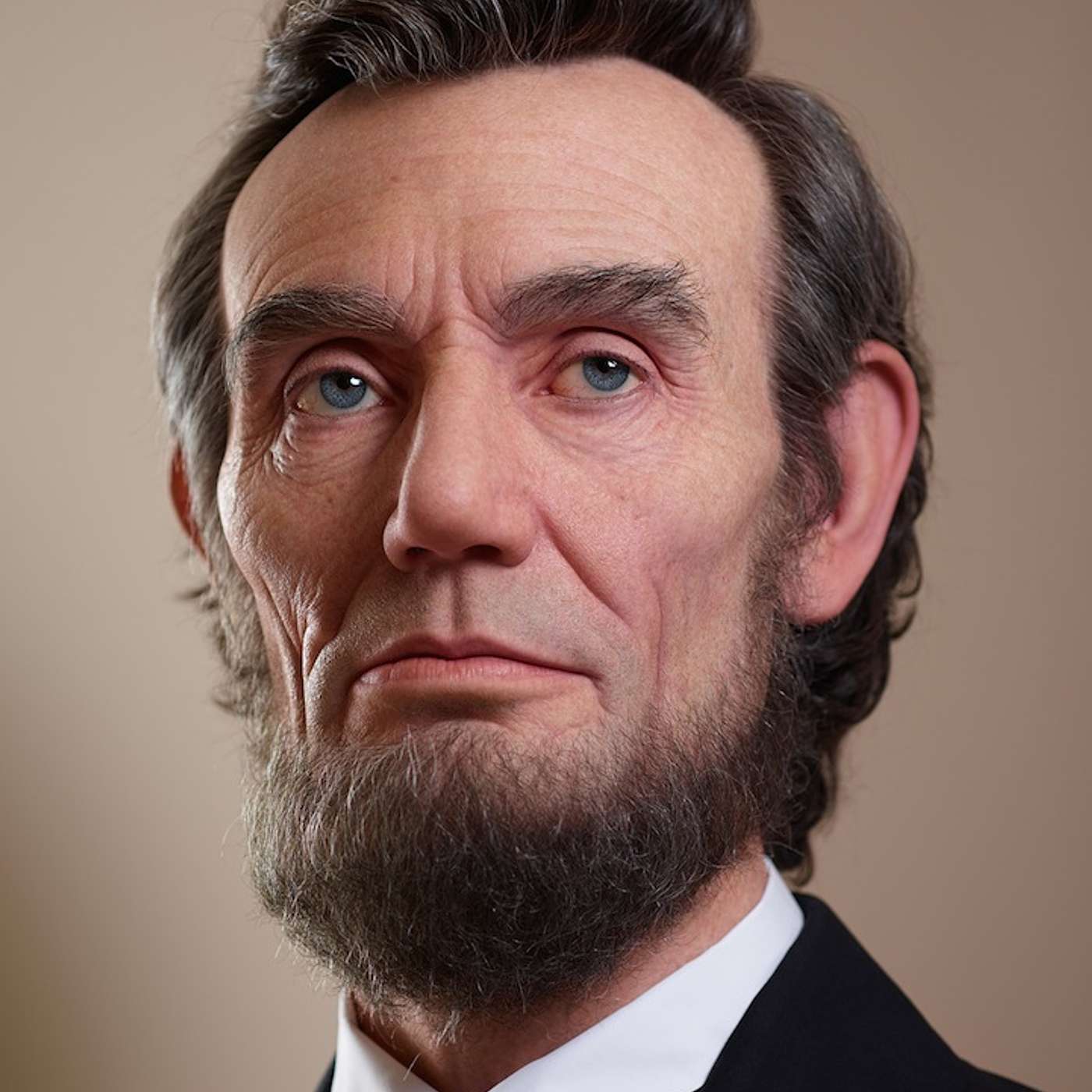
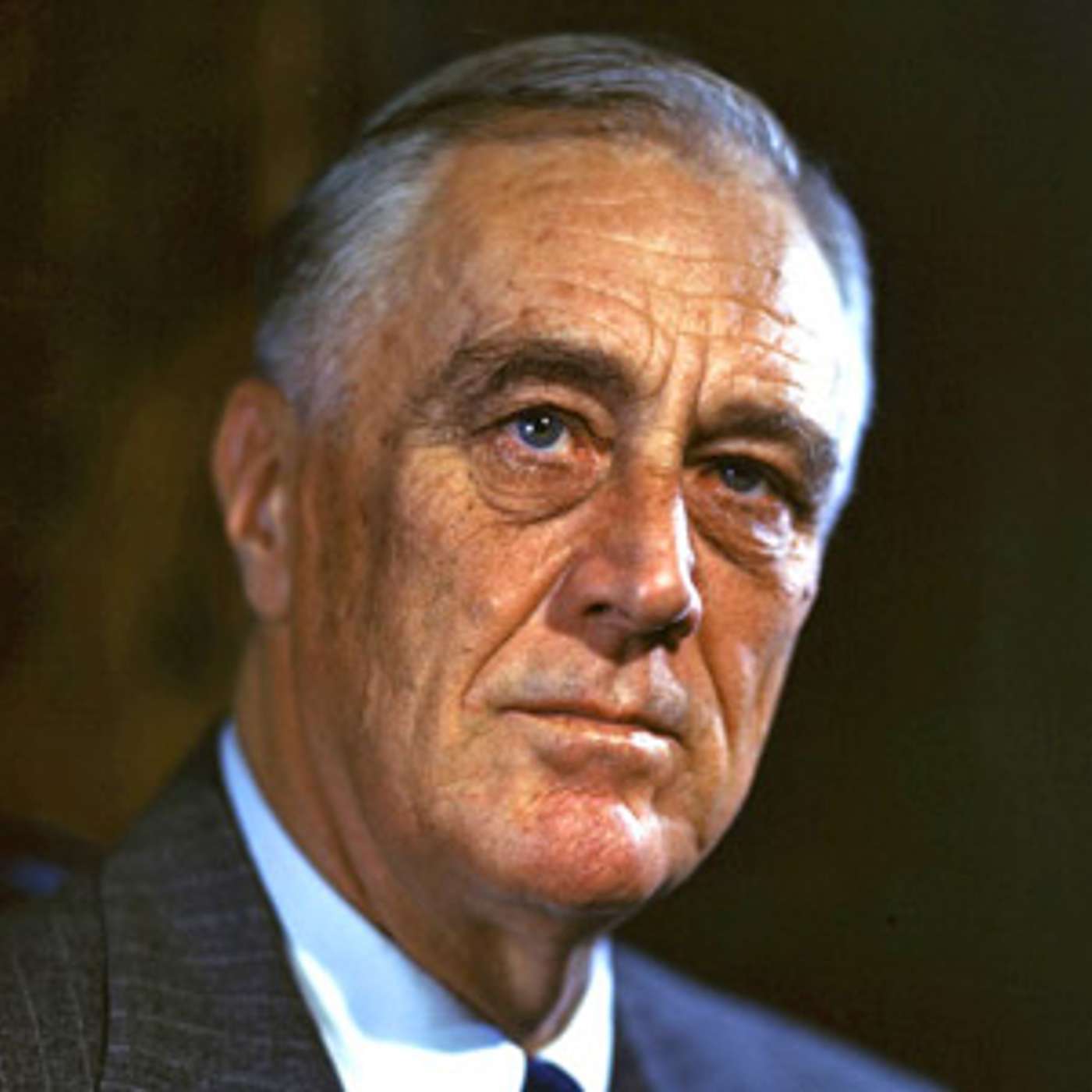
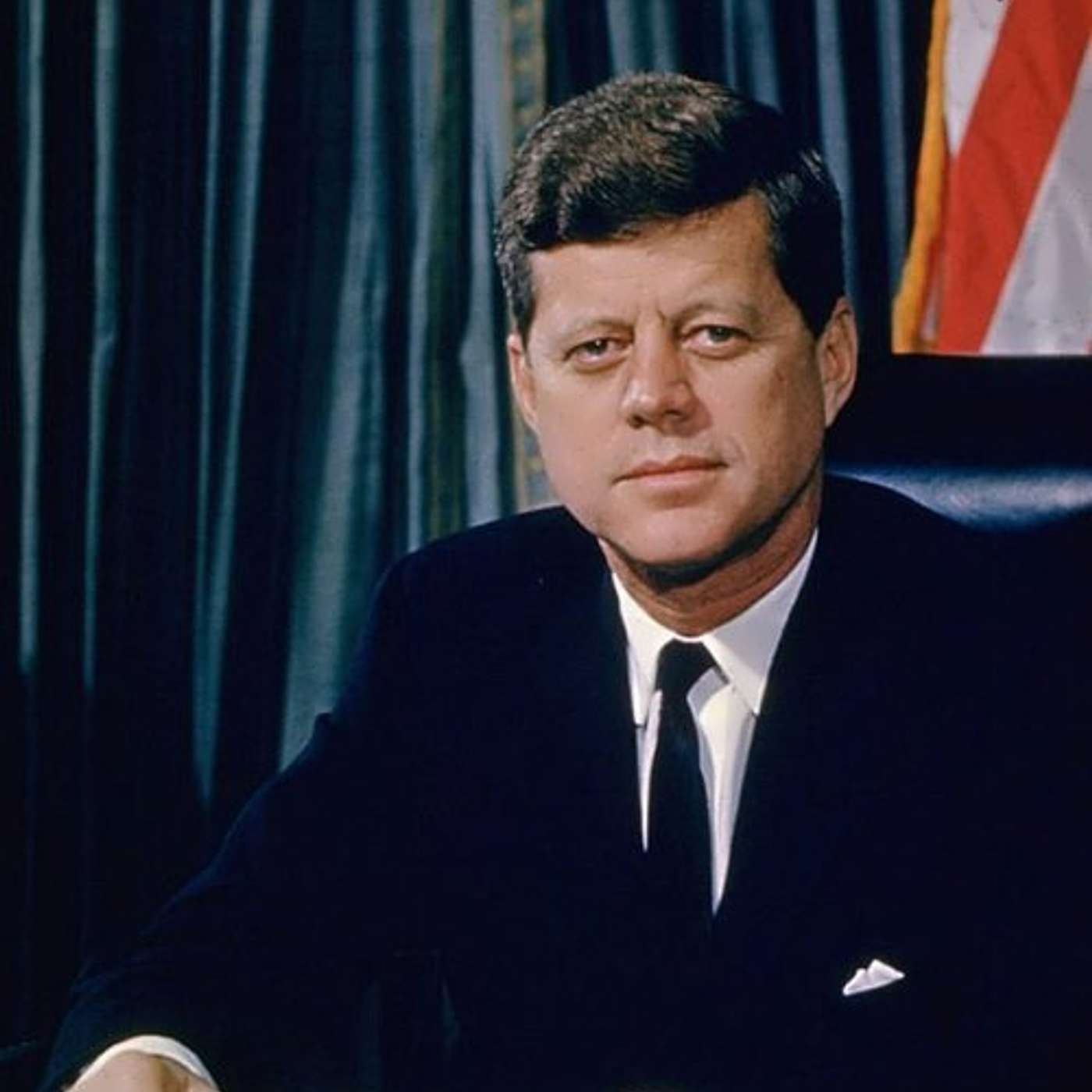

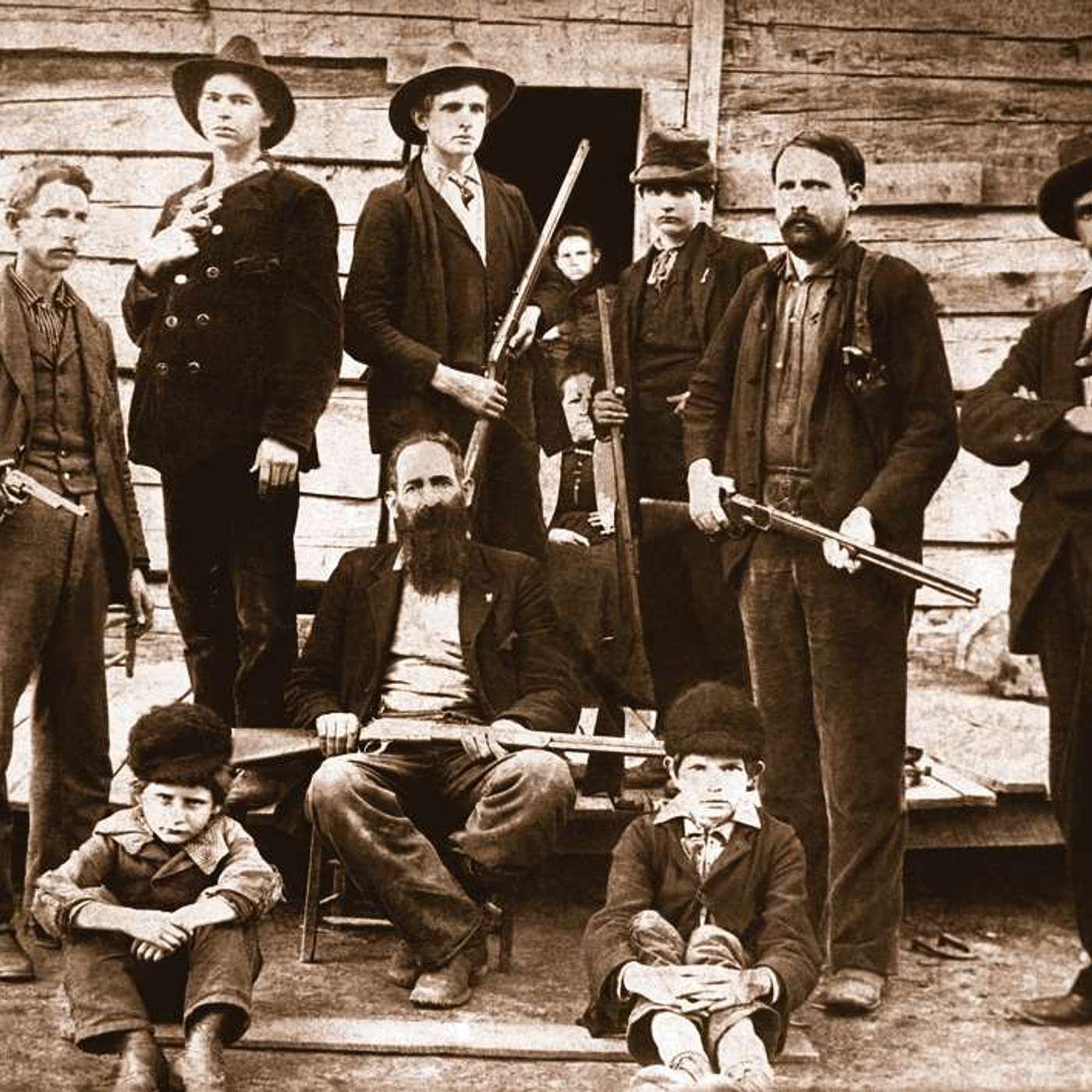
.jpg)

